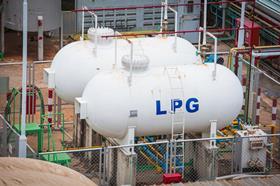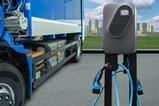Westport Fuel Systems, an alternative fuel specialist, has announced it has been awarded a programme to design and provide liquefied petroleum gas (LPG) systems to a major OEM to fit a number of its Euro-7 vehicle platforms. The agreement is estimated to produce €40 million in annual income, with production beginning in Q1 2025.

Westport’s OEM technology supply strategy includes driving alternative fuel technology adoption from light-duty to heavy-duty applications. Westport was granted a €38 million deal earlier this year to provide LPG system solutions for this same OEM’s Euro 6 vehicle applications. Westport will provide fuel systems solutions for the OEM’s Euro 7 applications in this new initiative, supplying the whole LPG system from the fuel tank to the fuel injectors.
“We are pleased to continue supplying this industry-leading OEM by supporting its mission to meet both Euro-6 and Euro-7 application requirements to help ensure cleaner vehicles and improved air quality for European communities,” said David M. Johnson, Chief Executive Officer of Westport Fuel Systems. “Our proven solutions provide the growing global market with affordable, clean transportation that optimizes overall vehicle performance and efficiency.”
LPG and bio-LPG, commonly known as propane or autogas, are alternative fuels that burn cleanly and are used to power light-, medium-, and heavy-duty vehicles. LPG-powered cars are a cost-effective low-emissions alternative to gasoline (petrol) or diesel vehicles, and the technology meets severe regulatory criteria for emissions reductions. LPG-powered trucks are authorised to operate in Europe’s emission-restricted traffic zones.
In markets where refuelling infrastructure is well established, cost-competitive alternative fuel sources like as LPG are a tempting choice for reducing greenhouse gas emissions. Option fuels for transportation applications are becoming increasingly popular as an inexpensive, efficient, and environmentally friendly alternative.


















